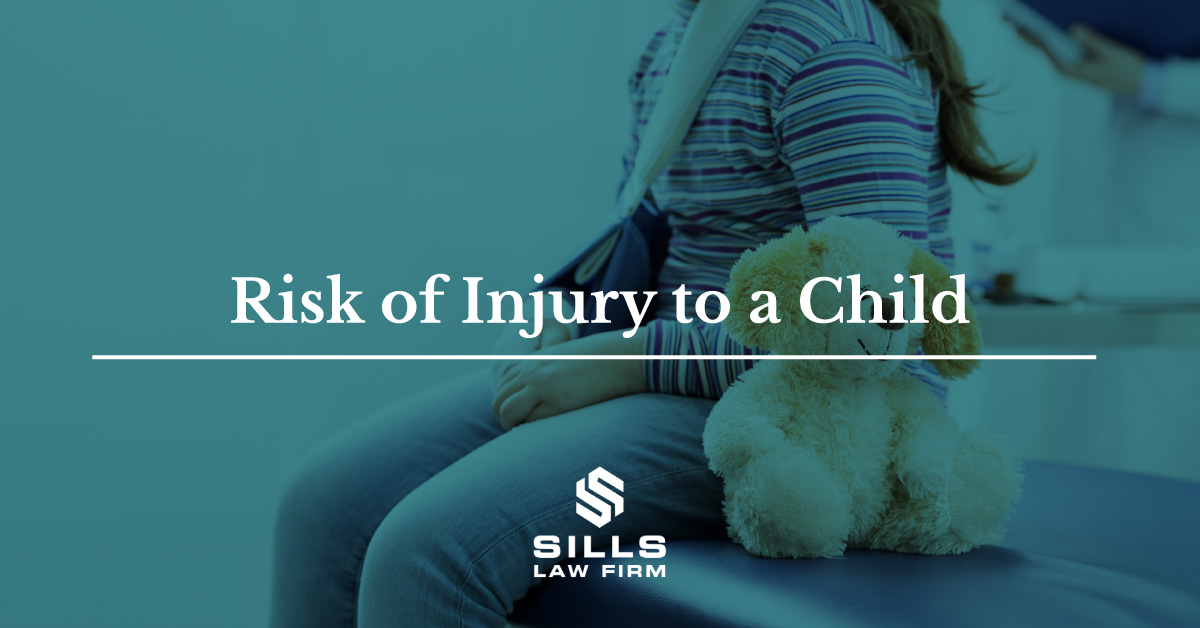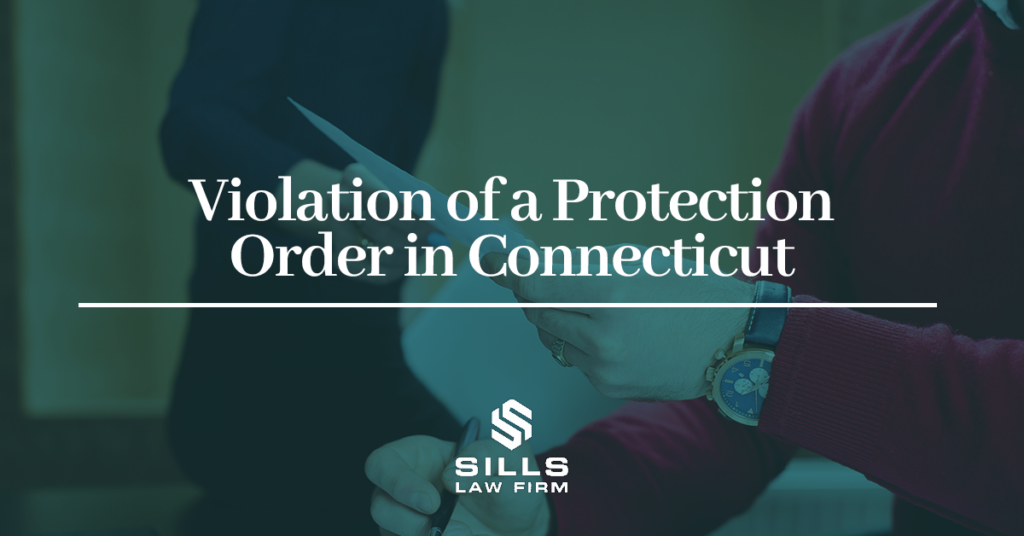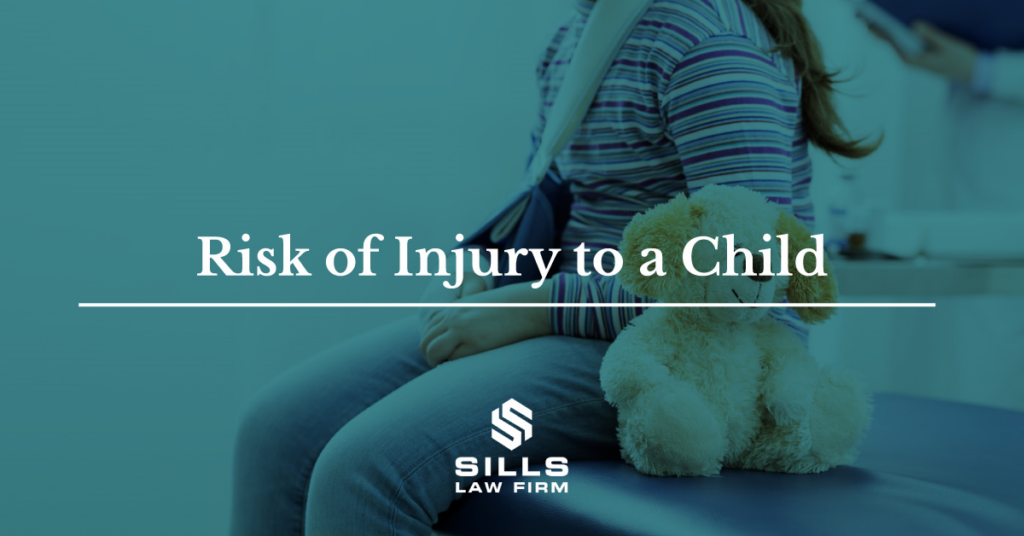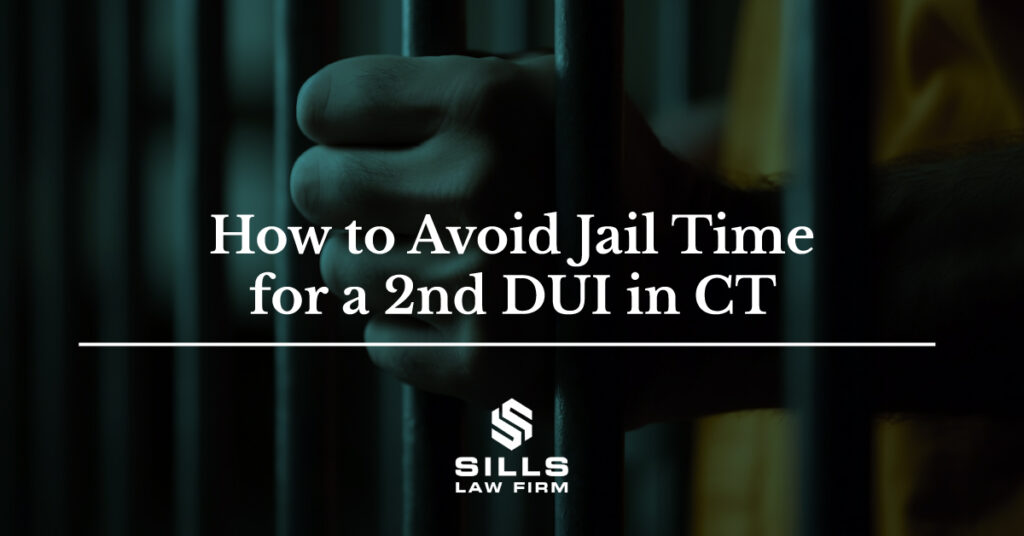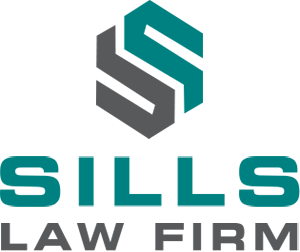For many people in Connecticut, it may come as a surprise that you can be charged with a crime for doing something that “impairs the morals” of your child. Yet in certain situations, you could be charged with a felony offense if you are considered to be endangering your child’s welfare in some way.
The crime of risk of injury to a child is broad, covering child endangerment and neglect cases as well as sexual contact with a minor and selling children. Most often, it is charged when parents or caregivers do something that could put a child at risk physically or emotionally – such as by leaving them home alone at a young age without supervision. While it is a serious charge that carries steep prison sentences, there are defenses to this type of allegation.
At the Sills Law Firm, we have deep experience representing clients who have been charged with all types of misdemeanor and felony crimes – including risk of injury to a minor. We thoroughly investigate each case, looking for the best possible factual and legal defenses to the charges against our clients. Contact our law offices today to schedule a free consultation with a Connecticut criminal defense lawyer.
What Is Risk of Injury to a Minor?
Risk of injury to a child is a broad criminal statute that can include any behavior that puts the health, safety, or even morals of a minor at risk. It is a felony offense that carries the potential for a lengthy prison sentence. Because it is broadly defined, a whole host of behaviors could be charged under this law.
This criminal charge requires a prosecutor to prove certain elements, based on what type of conduct is alleged to have occurred. The elements of this crime must be proven beyond a reasonable doubt. The statute makes it a crime to:
- Wilfully or unlawfully cause or permit any child under the age of 16 years to be placed in such a situation that their “life or limb” is endangered, their health is likely to be injured, their morals are likely to be impaired, or to do any act that is likely to impair the health or morals of any such child;
- Have contact with the intimate parts of a child under the age of 16 years or subject a child under 16 years to come into contact with their intimate parts in a sexual and indecent manner that is likely to impair the health or morals of the child; or
- Permanently transfer the legal or physical custody of a child under the age of 16 to another person for money or other valuable consideration, or to acquire the legal or physical custody of such a child for money or other consideration, except in a valid adoption proceeding.
The second and third parts of this statute involve extreme conduct: sexually abusing a minor child, and buying or selling a minor child. However, the first part – which applies to any situation where a child’s health, safety, or morals could be injured or impaired – could apply to a wide range of behaviors that could fall short of what most people would consider child endangerment or child abuse.
For example, if you are in an abusive relationship and your child is exposed to domestic violence in the home, then you could potentially be facing a risk of injury charge as part of a domestic violence arrest. If you leave your child at home unattended, it could result in a felony charge. Other common situations involving risk of injury cases include:
- Driving under the influence (DUI) with a child in the vehicle
- Using physical violence as discipline
- Having an unsafe home to the point where it puts a child at risk
While many of these situations do involve a substantial risk of harm to a child, in some cases, a risk of injury arrest is based on conduct that may not rise to the level of a felony crime.
Potential Penalties for Risk of Injury to a Child
Risk of injury to a minor is a felony offense that will result in a term of imprisonment. If you violate subsection 1 or 2 – endangering a child or selling/buying a child – then it is a class C felony. If you engage in sexual contact with a child under the age of 16, then it will be charged as a class A felony.
Class A felonies are considered the most serious criminal charge in Connecticut. Prison terms for a class A felony range from 10 years to life in prison, plus fines of up to $20,000. If the child victim in a crime of risk of injury is under 13, then a court cannot suspend or reduce 5 years of this term of imprisonment.
A Class C felony is considered less serious than a Class A felony. They are punished by 1 to 10 years in prison. In addition, you may be fined up to $10,000.
In other words, these charges are incredibly serious and could result in a lengthy term in prison. In some cases, it may be possible to enter an accelerated rehabilitation (AR) program to have the charges dismissed upon successful completion of the program. Acceptance into this alternative sentencing program requires that you meet certain criteria, including not having used AR within the past 10 years. Your Connecticut criminal attorney can work with you to help you determine if you are eligible for this program.
Defenses to a Risk of Injury Charge
There are a number of potential defenses to this criminal charge, particularly when it comes to the first subsection for endangering the health, safety, or morals of a child. This crime requires proof that a person willfully or intentionally did something to put a child’s health, safety, or moral well-being at risk. If you did something accidentally – such as lost sight of your kid at the grocery store when someone bumped into you – then that does not meet the definition of the crime.
This offense is often charged in connection with domestic violence cases, often in addition to an assault and battery or related charge. It may be charged even in cases where a child simply witnessed domestic violence and was never at risk of being hit or otherwise harmed. Your Connecticut criminal defense lawyer can advocate for this charge to be dropped as part of a broader plea bargain.
There are other potential defenses to this type of charge, often based on the specific facts of a case. For example, if you can prove that your child was not actually left unsupervised and that an older sibling or babysitter was in the home, then the charge may be dismissed. Alternatively, if the police violated your constitutional rights when investigating the crime, your lawyer may be able to have the evidence against you suppressed.
You must contact a CT criminal defense attorney as soon as possible if you are arrested for this or any related crime. Not only are you facing serious prison time with a risk of injury charge, but it could affect your custody rights.
Under Connecticut law, police officers are mandated reporters. They are required to make a referral to the Connecticut Department of Children and Families (DCF) after a risk of injury arrest. DCF is then required to perform an investigation into the circumstances of your case – and anything that you say to the DCF investigator could be used against you in criminal proceedings. Do not talk to the DCF investigator or to law enforcement before you have had an opportunity to consult with a Connecticut criminal lawyer.
This type of charge can have other consequences beyond prison time. For example, if you work with kids, then it could impact your job. In this situation, it is imperative that you contact an experienced attorney as soon as possible to protect your rights and your freedom.
How Our Law Firm Can Help
Being charged with risk of injury to a child can have a serious impact on your life. You may face anywhere from a year to life in prison – plus hefty fines. It can also have collateral consequences, such as losing custody of your child or losing your job. Fortunately, there are potential defenses to this and related charges.
At the Sills Law Firm, we are fierce advocates for clients who have been charged with all types of crimes – including risk of injury to a minor. We work hard to help our clients achieve the best possible outcome, whether through a plea deal, an AR program, or taking the case to trial. To learn more or to schedule a free initial consultation with a Connecticut criminal defense lawyer, in our Hartford or Waterbury offices, call us at 866-971-8410 or fill out our online contact form.
